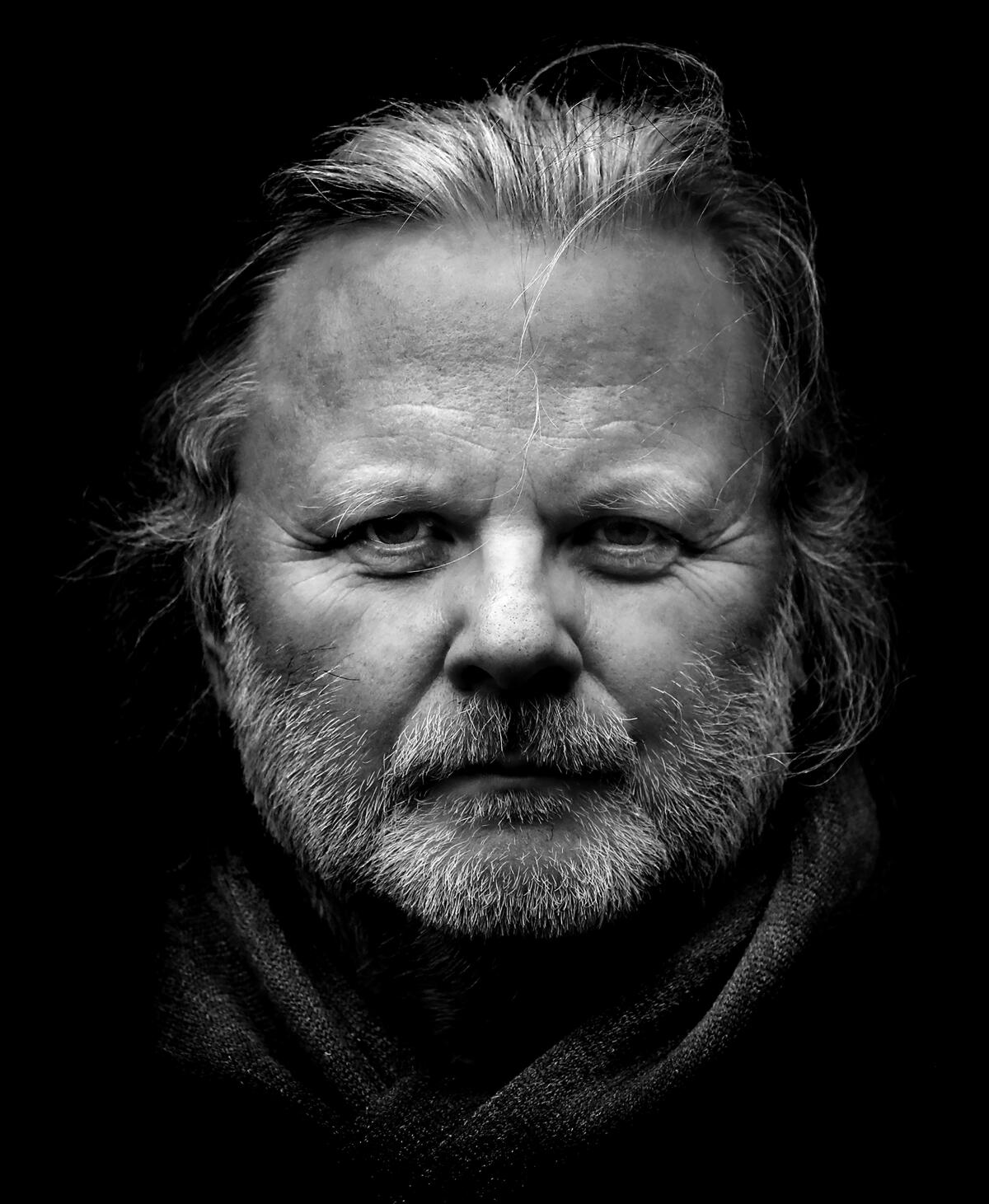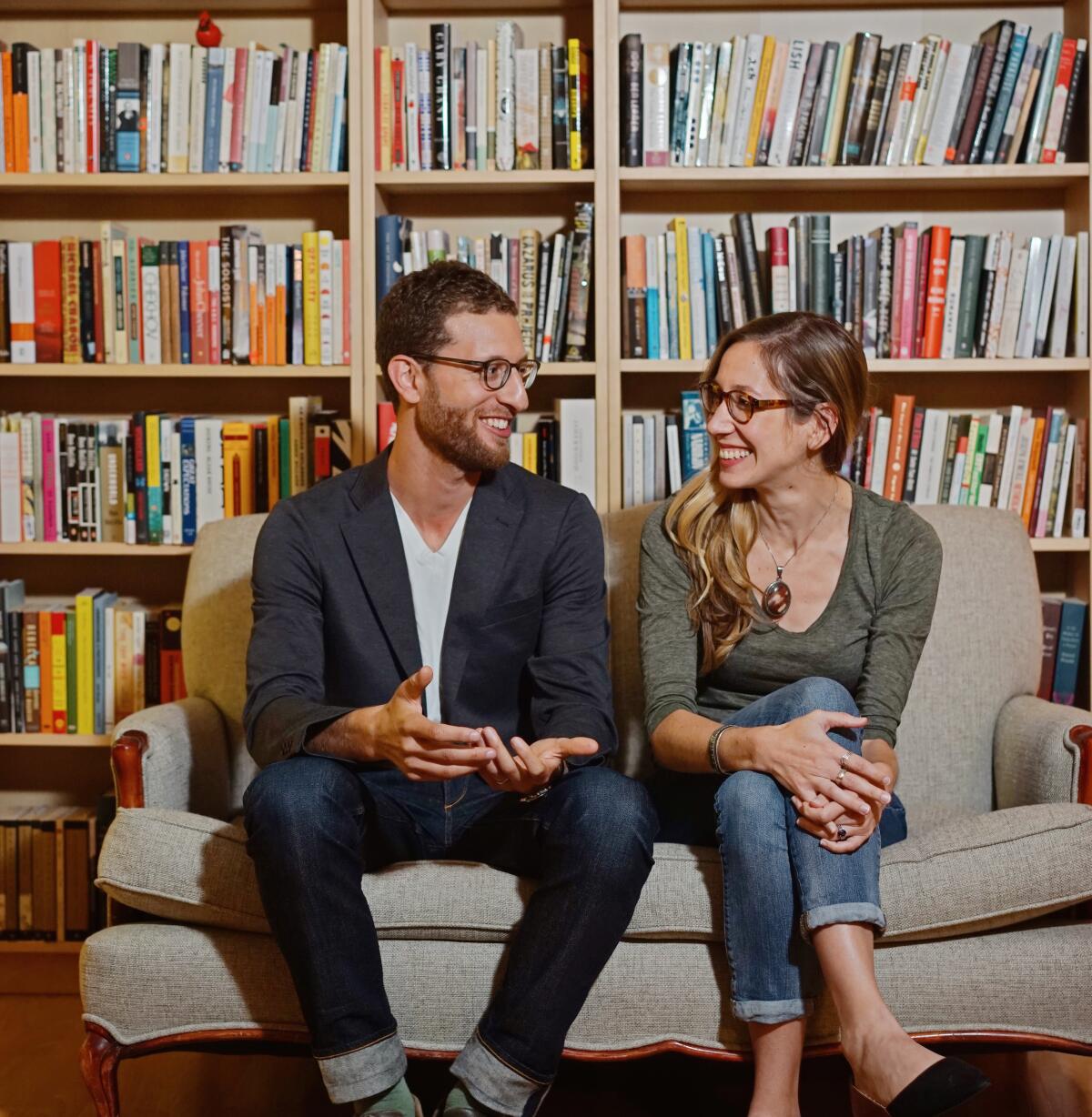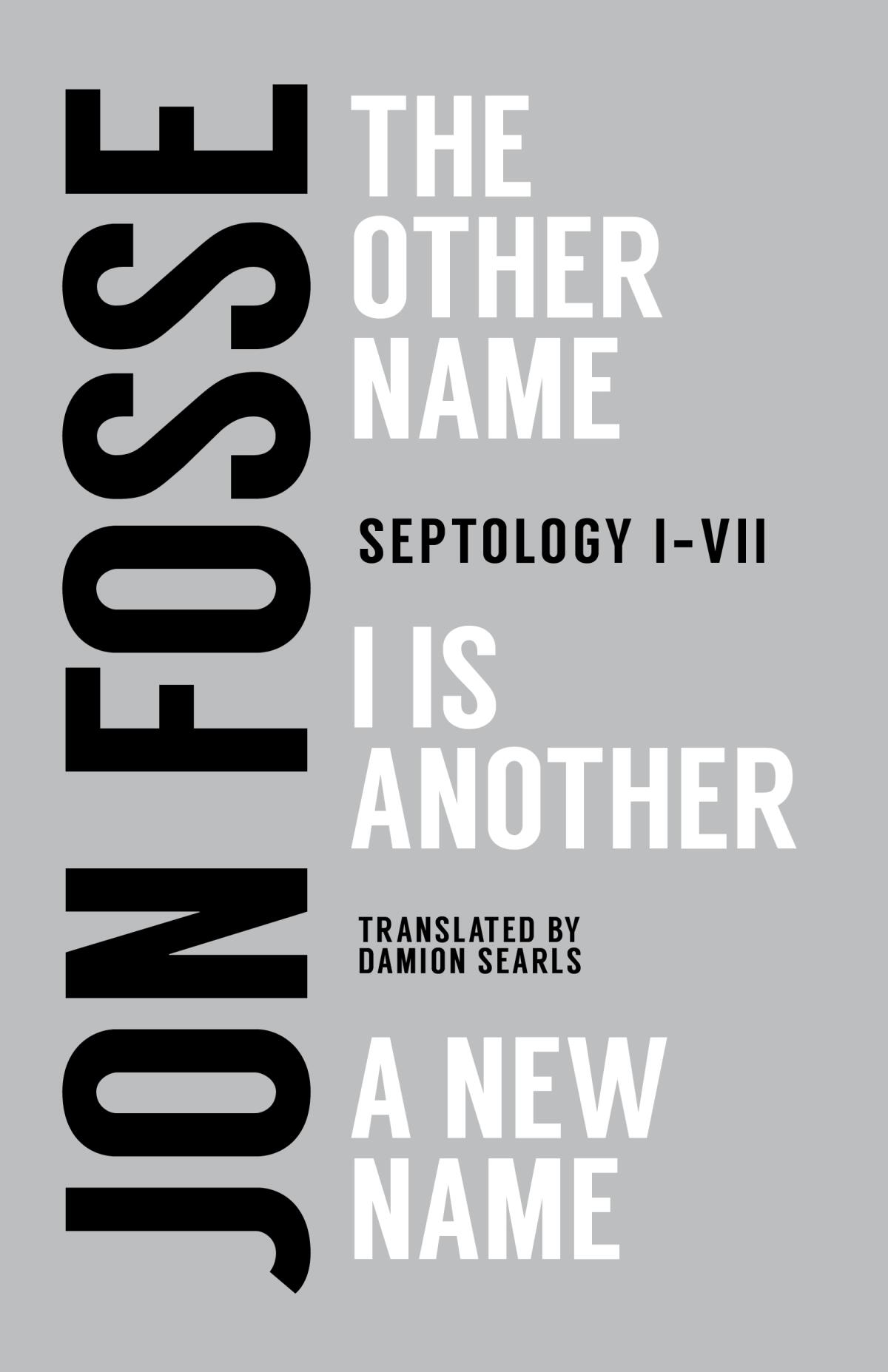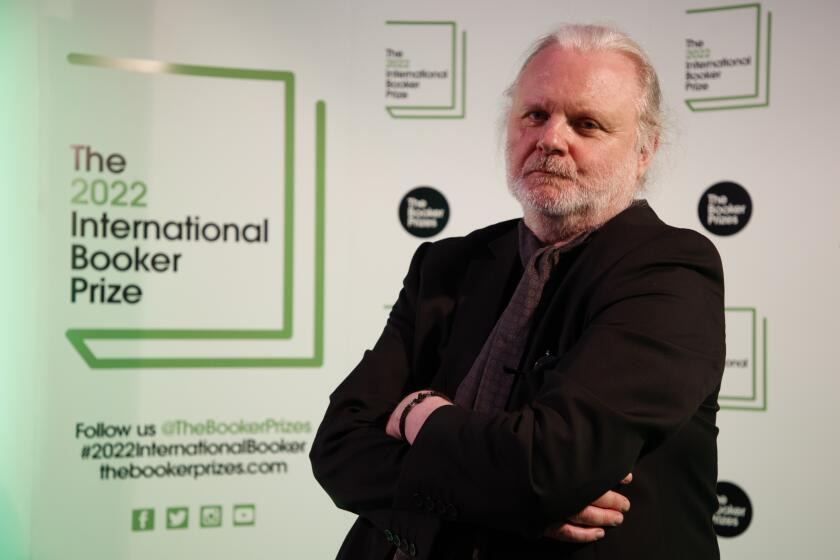How a tiny Bay Area publisher helped make Nobel laureate Jon Fosse a U.S. sensation

- Share via
The work of Norwegian author Jon Fosse, 64, winner of this year’s Nobel Prize for literature, announced Thursday, inspires an almost reverential awe among critics and fellow writers. His work has been described as hypnotic, incantatory, transcendent, prayer-like — a transformative, almost holy experience. And, indeed, his magnum opus, “Septology” — featuring the volumes “The Other Name,” “I Is Another” and “A New Name” (all translated by Damion Searls) — revolves around a Norwegian painter’s deeply spiritual questioning of faith and existence, love and art. Hari Kunzru called it “a strange mystical Moebius strip of a novel”; critic Wyatt Mason claimed it represented an entirely “new approach to writing fiction.” To Lauren Groff, it was like “a desperate prayer made radiant by sudden spikes of ecstatic beauty.”
Released here in the U.S. by the independent Bay Area-based publisher Transit Books, which was founded by Adam and Ashley Levy only eight years ago, the books had already garnered substantial critical praise and attention. “A New Name,” the final volume in the “Septology” sequence, was a finalist for a 2022 National Book Award and the International Booker Prize. But the Nobel Prize has taken Fosse, and Transit, to a whole new level.
Norwegian playwright and author Jon Fosse wins the Nobel Prize in literature for his ‘innovative plays and prose which give voice to the unsayable.’
Adam and Ashley Levy spoke with The Times via email on the day of the Swedish Academy’s thrilling, though perhaps not-so-surprising, announcement — which came, for them, extremely early, local time, but was a welcome wake-up call for their mission as publishers of groundbreaking international literature.

How did you first discover Fosse’s work? What struck you about his writing that made you want to publish him?
Adam: We were admirers of Fosse’s work before we started publishing him, but when we received the first 30-or-so-page samples on submission, we knew we’d encountered a major work — in many ways his most personal and profound.
Ashley: Something I’ve continued to tell people about Fosse’s writing, and thinking of “Septology” in particular, is how page-turning it is. It’s about art, God, death, love — who we are and what determines who we become. You fall into the sentences in a kind of hypnosis, like the recitation of prayer. He’s also got a great sense of humor. You can feel his playwriting sensibilities at work in a lot of the novel’s dialogue.
What were the challenges of publishing him here and introducing him to U.S. readers?
Adam: There are always a few daunting aspects of publishing a 700-page, single-sentence series of books about doppelgangers on the western coast of Norway meditating on life and art. But this is exactly the kind of work we founded Transit Books to publish: bold, imaginative, brilliant works from around the world. And though you can never really anticipate the kind of recognition Fosse has received with the Nobel, we’ve worked hard to raise his profile here and introduce his work to a broader readership.
Much of the world may consider him obscure, but to generations of writers with African roots, Abdulrazak Gurnah is both an influence and a role model.
Do you think it has helped that his English-language translator is American writer Damion Searls? They seem to have formed a deep, fruitful relationship.
Adam: Damion has been working with Jon for a while now, and they’ve developed a rich, trusting partnership. I say “trusting” because Jon, who is also a translator, understands that in order for his work to have life on the page in English, the translations need to re-effect the hypnotic cadence and rhythms of his work. These are qualities you don’t necessarily note in the selection of a word or a line but across a page and across a book, and Damion has done a remarkable job. His translations have made Jon’s books in English what they are.

What was your initial reaction to the Nobel Prize announcement? Did you wake up to the news in California?
Ashley: Shock, delight, frenzy. It’s so thrilling to see this happen for Fosse — work like his is the reason we started the press, to champion truly original literature coming from around the world that so often gets overlooked.
We set our alarm for 4 a.m. this morning (California time) because we knew it was a possibility that Jon could win, but neither of us was prepared for that news when we woke up. We jumped out of bed and started answering emails and phone calls and swigging coffee, while trying not to wake up our two kids.
What does the prize mean for Fosse and for Transit Books? It’s certainly an affirmation of your project as an independent publisher, and it could lead to larger readership and sales. Will you be able to fend off the bigger publishers from swooping in now?
Adam: This is an amazing recognition of Jon’s work, not only of his recent books but also of his long career in the theater. (His plays are more widely produced in Europe than they are in the States.) For Transit, yes, it’s an affirmation of the work we’ve been doing, but we’re a young house, growing our list and growing our presence here in the Bay Area and beyond, and we hope that we can use whatever added wattage that comes with the prize to shine a light on more great books from around the world. As for the bigger publishers, we can’t help it if they’re late to the party.
Pop songs as literature? Bob Dylan as a Nobel laureate? What is this world coming to?
What can we expect from his new novel, “A Shining,” which is coming out later this month?
Adam: “A Shining” is a great place to start for readers new to Fosse’s work. It’s a slim, dreamlike novel about a man who finds himself stuck at the end of a forest road, and rather than seeking help he ventures into the woods, where he’s confronted by a shining presence in the darkness. It’s like if Beckett had written the Pine Barrens episode of “The Sopranos.” It’s the perfect way to jump-start anyone’s Fosse fandom.
Tepper is curator of international literature at City of Asylum in Pittsburgh.
More to Read
Sign up for our Book Club newsletter
Get the latest news, events and more from the Los Angeles Times Book Club, and help us get L.A. reading and talking.
You may occasionally receive promotional content from the Los Angeles Times.











